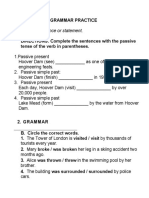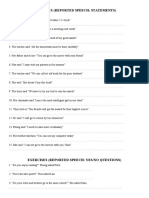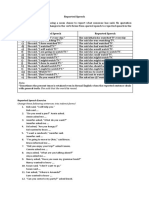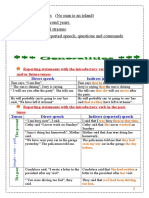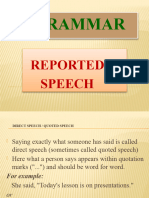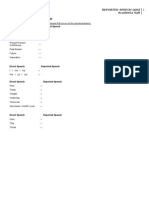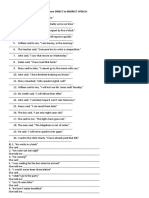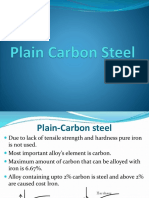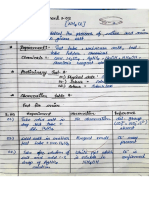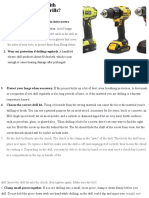0% found this document useful (0 votes)
46 views15 pagesReported Speech
The document is a comprehensive guide on reported speech, covering various forms such as statements, questions, commands, and requests. It includes exercises for practicing the conversion between direct and indirect speech, as well as the use of reporting verbs. Additionally, it provides examples and prompts for transforming sentences into reported speech.
Uploaded by
pusaobiCopyright
© © All Rights Reserved
We take content rights seriously. If you suspect this is your content, claim it here.
Available Formats
Download as DOCX, PDF, TXT or read online on Scribd
0% found this document useful (0 votes)
46 views15 pagesReported Speech
The document is a comprehensive guide on reported speech, covering various forms such as statements, questions, commands, and requests. It includes exercises for practicing the conversion between direct and indirect speech, as well as the use of reporting verbs. Additionally, it provides examples and prompts for transforming sentences into reported speech.
Uploaded by
pusaobiCopyright
© © All Rights Reserved
We take content rights seriously. If you suspect this is your content, claim it here.
Available Formats
Download as DOCX, PDF, TXT or read online on Scribd
/ 15







